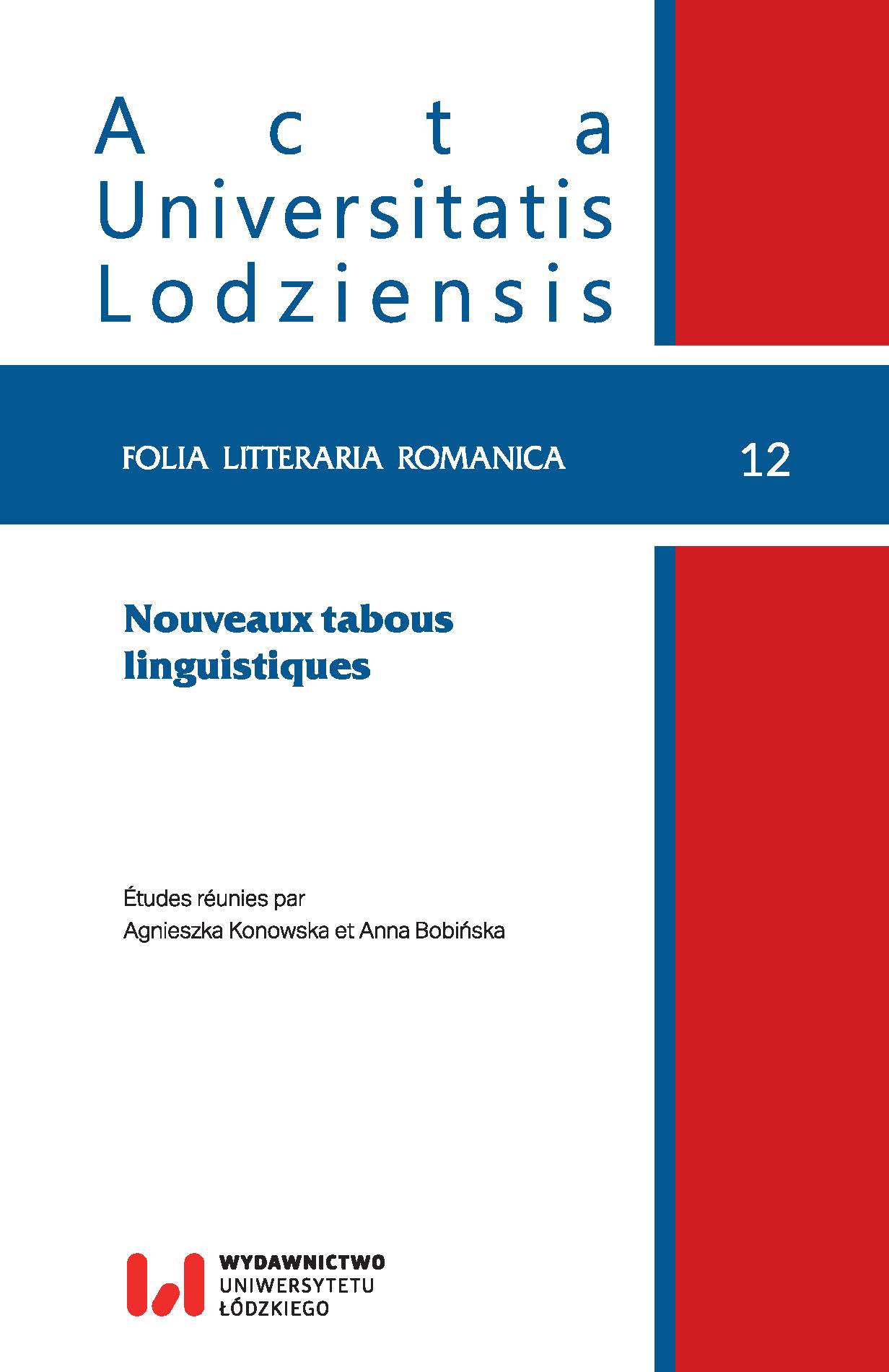La rupture du tabou sur internet – analyse linguistique des mèmes sur Aleksander Kwaśniewski
Breaking the taboo on the Internet – linguistic analysis of the memes on Aleksander Kwaśniewski
Author(s): Andrzej Napieralski, Alina GoniewiczSubject(s): Philology
Published by: Wydawnictwo Uniwersytetu Łódzkiego
Keywords: sociolinguistics; lexicology; hate; meme; social media; Facebook; taboo; sociolinguistique; lexicologie; hate; mème; réseaux sociaux; Facebook; tabou
Summary/Abstract: In the book Totem and taboo Sigmund Freud says that “the foundation of taboo is the forbidden action for whom exists in the sub-conscience a strong inclination”. Politics is a discipline that has been benefitcial/gainful to men from the beginning, has been shown for advantage the men who awake constraint emotions, like admiration, curiosity, but also jealousy or disregard. By the emergence of social media, like Twitter or Facebook, and thanks to liberty of expression on the internet, we observe strong inclination for our sub-conscience that is satisfied with no limits. We were interested in our research in the taboo of alcoholic inclinations of polish ex-president, Aleksander Kwaśniewski who is still alive in the internet. With visual support and at the same time modern means of communication in the Internet, the memes, we will present the company of denigration which is caused by the hate using the irony and the euphemism as a way to break the taboo that exists for 25 years. Our clasement will base on the corpus created from about a hundred memes taken from the Facebook fanpage “Aleksander Kwaśniewski Memes”. Putting aside the sociolinguistic analysis, we will proceed the classification of the memes from the point of vew of their construction, distinguishing the figures, the allusions, the neologisms, the “borrowed” words, the graphic and the phonetic changes which can be observed. // Dans le livre Totem et tabou Sigmund Freud remarque que « le fondement du tabou est une action interdite pour laquelle il existe dans l’inconscient une forte inclination ». La politique est un domaine qui, depuis son apparition, met en valeur des hommes qui éveillent en même temps des émotions ambiguës comme l’admiration, la curiosité, voire parfois la jalousie et le mépris. Avec l’émergence des réseaux sociaux (Twitter et Facebook) et grâce à la liberté d’expression sur Internet, on constate que cette forte inclination de notre inconscient peut enfin être assouvie sans limites. Le but de notre communication sera de présenter comment le tabou concernant les penchants vers l’alcool de l’ex-président de la Pologne Aleksander Kwaśniewski demeure sur Internet. A l’aide de supports visuels et à la fois d’outils contemporains de la communication sur Internet - des mèmes, nous allons présenter une campagne de dénigrement relevant du hate dans laquelle l’euphémisme et l’ironie sont responsables de la rupture d’un tabou datant d’il y a près de 25 ans. Notre classement sera effectué sur un corpus d’une centaine de mèmes tirés essentiellement de Facebook et du fanpage « Aleksander Kwaśniewski Memes ». Mis à part l’analyse sociolinguistique de ce phénomène, nous allons procéder à un classement de ces mèmes du point de vue de leur construction en distinguant entre autres les figures, les allusions, les néologismes, les emprunts, les jeux graphiques et phonétiques qui s’y produisent.
Journal: Acta Universitatis Lodziensis. Folia Litteraria Romanica
- Issue Year: 2017
- Issue No: 12
- Page Range: 191-204
- Page Count: 14
- Language: French

